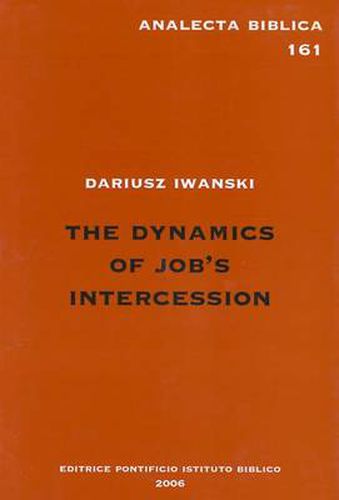Readings Newsletter
Become a Readings Member to make your shopping experience even easier.
Sign in or sign up for free!
You’re not far away from qualifying for FREE standard shipping within Australia
You’ve qualified for FREE standard shipping within Australia
The cart is loading…






la dinamica dell'intercessione di Giobbe. Studio di Dariusz Iwanski, che mostra come, nel libro di Giobbe, l'intercessione del protagonista diventi un veicolo per sottolineare il ruolo di Giobbe nel dramma e, infine, per rivendicare la sua perfezione, messa in dubbio dagli amici e da Satana. The author of the book twice pictures Job as intercessor. In the prologue the main protagonist offers atonement holocausts for his sons in case they have sinned. His intercession in the Epilogue is performed in a very dramatic context. Job prays for his friend when he himself is in a pitiful situation. Especially the latter case of intercession is pregnant with meaning. We argue that it can be viewed in two dimensions: horizontal and vertical. By analyzing these dimensions the study contributes to our understanding of the dynamics of Job’s intercession. Intercession becomes a vehicle to emphasize Job’s role in the drama and finally vindicate his perfection, which was put to doubt by the friends and by Satan in the course of the drama. On the horizontal level the intercession becomes a way for reconciliation between Job and his friends. Seen against the vertical level it first stands as an expression of Job’s perfection (disinterested piety in particular): secondly it allows the reestablishment of cordial relations between Job and Yahweh (reconciliation).
$9.00 standard shipping within Australia
FREE standard shipping within Australia for orders over $100.00
Express & International shipping calculated at checkout
la dinamica dell'intercessione di Giobbe. Studio di Dariusz Iwanski, che mostra come, nel libro di Giobbe, l'intercessione del protagonista diventi un veicolo per sottolineare il ruolo di Giobbe nel dramma e, infine, per rivendicare la sua perfezione, messa in dubbio dagli amici e da Satana. The author of the book twice pictures Job as intercessor. In the prologue the main protagonist offers atonement holocausts for his sons in case they have sinned. His intercession in the Epilogue is performed in a very dramatic context. Job prays for his friend when he himself is in a pitiful situation. Especially the latter case of intercession is pregnant with meaning. We argue that it can be viewed in two dimensions: horizontal and vertical. By analyzing these dimensions the study contributes to our understanding of the dynamics of Job’s intercession. Intercession becomes a vehicle to emphasize Job’s role in the drama and finally vindicate his perfection, which was put to doubt by the friends and by Satan in the course of the drama. On the horizontal level the intercession becomes a way for reconciliation between Job and his friends. Seen against the vertical level it first stands as an expression of Job’s perfection (disinterested piety in particular): secondly it allows the reestablishment of cordial relations between Job and Yahweh (reconciliation).